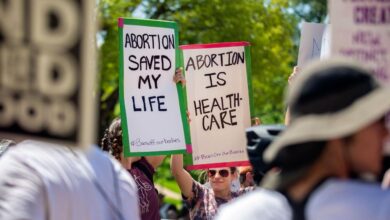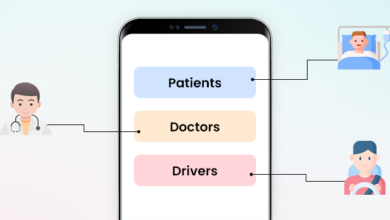
Florida Medicaid Redeterminations Lawsuit
Florida Medicaid redeterminations lawsuit: It’s a headline that’s been making waves, sparking heated debates and raising serious concerns about access to healthcare for vulnerable Floridians. This legal battle centers around the state’s process of reviewing Medicaid eligibility, a process that’s thrown thousands into uncertainty about their healthcare coverage. We’ll delve into the specifics of the lawsuit, exploring the arguments, the potential consequences, and the broader implications for healthcare access in Florida and beyond.
The lawsuit challenges key aspects of Florida’s redetermination process, arguing that it’s flawed and leads to the unjust removal of eligible individuals from the Medicaid program. This has led to a complex legal fight, with various stakeholders weighing in on the potential ramifications. The outcome will significantly impact not only the individuals directly affected but also the state’s healthcare system as a whole.
We’ll examine the legal arguments, the public’s reaction, and expert opinions to get a comprehensive understanding of this critical issue.
Background of the Florida Medicaid Redeterminations Lawsuit
The Florida Medicaid redeterminations lawsuit stemmed from a significant policy shift in the state’s approach to Medicaid eligibility. Following the expiration of the COVID-19 public health emergency, Florida, like many other states, faced the task of reassessing the eligibility of its Medicaid recipients. This process, known as redetermination, involved verifying whether individuals still met the income and other requirements to remain enrolled in the program.
However, the state’s implementation of this process became the subject of intense legal challenge.The lawsuit centers on the specific regulations and policies Florida adopted for its redetermination process. Critics argued that the state’s procedures were overly burdensome, lacked adequate safeguards for vulnerable populations, and resulted in an unacceptable number of eligible individuals being improperly removed from the program.
Specific concerns included overly complex application forms, inadequate notice periods, and a lack of sufficient resources to assist individuals in navigating the process. These concerns were amplified by the fact that many Medicaid recipients have limited access to technology and assistance with bureaucratic processes.
Key Players in the Lawsuit
The lawsuit involved a complex interplay of plaintiffs, defendants, and supporting organizations. The plaintiffs, representing a coalition of individuals and advocacy groups, argued on behalf of those who were unjustly disenrolled from Medicaid. The defendants were state officials responsible for the administration of Florida’s Medicaid program. Several national organizations dedicated to healthcare access and legal aid provided significant support to the plaintiffs, offering legal expertise and resources to the case.
The specific names of individuals and organizations involved would need to be sourced from official court documents and news reports.
Core Arguments Presented
The plaintiffs’ core argument rested on the assertion that Florida’s redetermination process violated federal law and the state’s own constitutional obligations to provide access to healthcare for its most vulnerable citizens. They argued that the state’s methods led to a significant number of wrongful disenrollments, leaving many individuals without access to necessary medical care. The plaintiffs also highlighted the disproportionate impact on marginalized communities.
The defendants, on the other hand, defended the state’s actions, arguing that the redetermination process was conducted in accordance with federal regulations and that any errors were minimal and unavoidable given the scale of the undertaking. They emphasized the importance of ensuring that only eligible individuals remained enrolled in the Medicaid program to maintain fiscal responsibility.
The Florida Medicaid redeterminations lawsuit highlights the fragility of healthcare access for vulnerable populations. It makes you think about the struggles faced by healthcare workers, like those involved in the new york state nurse strike NYSNA Montefiore Mount Sinai , who are fighting for better patient care and working conditions. Ultimately, both situations underscore the need for a stronger, more equitable healthcare system nationwide.
Legal Arguments and Procedures

Source: cloudinary.com
The Florida Medicaid redeterminations lawsuit rests on several key legal arguments, challenging the state’s processes and impacting thousands of residents. The plaintiffs argue that the state’s methods violated federal law and their due process rights, leading to wrongful terminations of Medicaid coverage.The legal basis of the lawsuit stems primarily from the Medicaid Act (42 U.S.C. § 1396 et seq.) and its implementing regulations.
Specifically, the plaintiffs contend that Florida failed to comply with federal requirements regarding timely and accurate processing of redeterminations, fair hearings, and notice provisions. Case law, including precedents established in similar challenges to state Medicaid programs across the country, provides further support for their claims. These precedents highlight the importance of adhering to federal guidelines to ensure equitable access to healthcare.
Legal Basis of the Lawsuit
The core of the plaintiffs’ argument centers on the alleged violation of the federal Medicaid Act’s requirements for fair hearings and adequate notice. The plaintiffs argue that Florida’s streamlined redetermination process, implemented in the wake of the COVID-19 public health emergency, lacked the necessary safeguards to protect beneficiaries from erroneous terminations. They cite specific instances where individuals were removed from Medicaid despite meeting eligibility criteria, often due to procedural errors or insufficient communication from the state.
The Florida Medicaid redeterminations lawsuit is raising serious concerns about access to care. This highlights the need for efficient documentation processes, which is why news about nuance integrating generative AI scribe with Epic EHRs is so interesting. Could this technology help streamline the process and ensure accurate data collection for those potentially affected by the lawsuit?
Ultimately, improving efficiency in healthcare documentation could be key to mitigating the impact of the Florida Medicaid changes.
Furthermore, the lawsuit alleges that the state failed to provide adequate assistance to beneficiaries navigating the complex redetermination process, particularly those with limited English proficiency or other vulnerabilities. The plaintiffs rely on case law establishing the federal government’s authority to oversee state Medicaid programs and ensure compliance with federal standards.
The Florida Medicaid redeterminations lawsuit is raising serious concerns about access to healthcare, especially for vulnerable populations. This comes at a time when major players like Walgreens are expanding their healthcare footprint, as evidenced by their recent announcement that they’re raising their healthcare segment outlook following the Summit acquisition – check out this article for details: walgreens raises healthcare segment outlook summit acquisition.
The implications of both the lawsuit and Walgreens’ expansion could significantly impact the availability of affordable healthcare in Florida.
Procedural Steps Taken in the Case
The lawsuit began with the filing of a complaint in the appropriate federal court, outlining the plaintiffs’ claims and requesting injunctive relief to halt the unlawful terminations and restore coverage to those wrongfully disenrolled. The defendants, state officials responsible for administering the Medicaid program, responded with a motion to dismiss, arguing that the plaintiffs lacked standing or that their claims were without merit.
Subsequent procedural steps involved discovery, where both sides gathered evidence through depositions, interrogatories, and document requests. The court may have held hearings on various motions, such as motions to compel discovery or motions for summary judgment. These hearings allowed the judge to rule on specific procedural issues or arguments presented by the parties.
Timeline of Significant Events
A detailed timeline of significant events would include the date of the initial complaint filing, the date of the defendants’ response, key dates for discovery deadlines, dates of any hearings held, and the date of any rulings issued by the court. This timeline should also include any appeals filed by either party. For example, a hypothetical timeline might look like this:* June 1, 2023: Complaint filed.
July 15, 2023
Defendants file motion to dismiss.
September 1, 2023
Hearing on motion to dismiss.
October 15, 2023
Judge denies motion to dismiss.
November 30, 2023
Discovery deadline.
February 1, 2024
Motion for summary judgment filed by plaintiffs.(Note: This is a hypothetical timeline and should be replaced with the actual timeline of events from the specific lawsuit.)
Legal Precedents and Similar Cases
Several legal precedents and similar cases across the nation have influenced the proceedings. Cases challenging state Medicaid redetermination processes in other states, particularly those involving similar allegations of procedural irregularities or inadequate notice, provide valuable guidance and support for the arguments made in this lawsuit. These cases have established legal principles regarding the appropriate standards for due process in the context of Medicaid eligibility determinations.
The court will likely consider the reasoning and outcomes of these prior cases when evaluating the merits of the current lawsuit. For instance, a case involving a similar challenge in another state might establish a precedent regarding the type and amount of notice required to be provided to Medicaid recipients before their coverage is terminated.
Potential Impacts of the Lawsuit
The Florida Medicaid redetermination lawsuit carries significant weight, with potential ramifications extending far beyond the immediate legal battle. The outcome will profoundly affect Medicaid recipients, the state’s healthcare system, and potentially influence national Medicaid policy. Understanding these potential impacts is crucial for assessing the lawsuit’s broader significance.
Consequences for Medicaid Recipients
The most direct impact will be felt by Florida’s Medicaid recipients. A favorable ruling for the plaintiffs could prevent the disenrollment of thousands of individuals, ensuring continued access to vital healthcare services. Conversely, an unfavorable ruling could lead to a significant loss of coverage, resulting in delayed or forgone medical care, increased medical debt, and potentially worsening health outcomes for vulnerable populations.
For example, a person with a chronic illness like diabetes might lose access to insulin, leading to serious health complications. Similarly, a child requiring regular check-ups could face interrupted care, potentially impacting their long-term health. The scale of this impact will directly correlate with the number of individuals ultimately affected by the redetermination process.
Impact on Florida’s Healthcare System and Budget
The lawsuit’s outcome will significantly influence Florida’s healthcare system and its budget. Maintaining coverage for a larger number of individuals, as a result of a plaintiff victory, would increase the state’s Medicaid expenditure. This could necessitate budget reallocations, potentially impacting other state programs or requiring increased tax revenue. Conversely, a significant reduction in Medicaid enrollment due to an unfavorable ruling might temporarily alleviate budgetary pressures, but could also lead to increased utilization of emergency services, resulting in higher overall healthcare costs in the long run.
This shift in costs could overwhelm hospitals and clinics ill-equipped to handle a sudden influx of uninsured patients. The state’s ability to effectively manage the influx of patients, regardless of the outcome, will be a critical factor in determining the long-term success of its healthcare system.
Implications for National Medicaid Policy
The legal arguments and precedent set by this Florida lawsuit could have far-reaching consequences for national Medicaid policy. A ruling favoring the plaintiffs could embolden similar legal challenges in other states, potentially leading to nationwide changes in eligibility verification processes. Conversely, a ruling against the plaintiffs might solidify existing practices, potentially impacting other states considering similar approaches to Medicaid redeterminations.
This case serves as a test case, and its outcome will likely influence how other states navigate the complexities of Medicaid eligibility and enrollment. The decision will set a precedent, either challenging or reinforcing the current federal guidelines concerning Medicaid eligibility reviews.
Effects on Access to Healthcare for Vulnerable Populations
The lawsuit’s impact on vulnerable populations is arguably the most significant concern. Individuals with disabilities, low-income families, and the elderly are disproportionately reliant on Medicaid. Losing coverage could lead to catastrophic health consequences for these populations, exacerbating existing health disparities. For instance, a person with a disability might lose access to essential therapies or support services, significantly impacting their quality of life.
Similarly, a low-income family might struggle to afford necessary medical care for their children, leading to preventable illnesses and long-term health problems. The case highlights the critical need to ensure equitable access to healthcare for all, regardless of socioeconomic status.
Public Opinion and Media Coverage

Source: healthinsurance.org
The Florida Medicaid redeterminations lawsuit has sparked a considerable amount of public discussion and media attention, generating a diverse range of opinions and interpretations. The intensity of the reaction reflects the significant impact the lawsuit could have on access to healthcare for a substantial portion of the state’s population.Public reaction has been largely divided along partisan lines, with supporters of the lawsuit often highlighting concerns about bureaucratic inefficiencies and potential cost savings, while opponents emphasize the potential for increased healthcare disparities and negative consequences for vulnerable populations.
Social media platforms have been particularly active in disseminating information and opinions, often featuring highly charged rhetoric from both sides. Many Floridians have expressed anxiety about the uncertainty surrounding their healthcare coverage during this period of legal challenge.
Media Portrayal of the Lawsuit
Media coverage of the lawsuit has been extensive, though its tone and framing have varied significantly across different news outlets. Conservative media outlets have generally portrayed the lawsuit favorably, emphasizing arguments about fiscal responsibility and administrative reform. Conversely, liberal media outlets have often highlighted the potential negative consequences for vulnerable populations and criticized the state’s approach to redeterminations.
This divergence in coverage reflects a broader polarization in the political landscape, with the lawsuit becoming yet another battleground for ideological conflict. Many news articles have focused on the legal arguments presented by both sides, quoting extensively from court filings and expert opinions. However, some outlets have also dedicated space to human-interest stories featuring individuals who may be directly affected by the outcome of the lawsuit.
Media Outlets’ Coverage and Perspectives
| Media Outlet | Perspective | Key Arguments Highlighted | Overall Tone |
|---|---|---|---|
| Fox News | Generally favorable to the lawsuit | Fiscal responsibility, administrative efficiency | Positive, supportive of the state’s actions |
| The New York Times | Critical of the lawsuit | Potential harm to vulnerable populations, increased healthcare disparities | Negative, concerned about the consequences |
| The Miami Herald | Mixed, presenting multiple perspectives | Both sides of the argument, including potential economic and social impacts | Neutral, aiming for balanced reporting |
| Tampa Bay Times | Concerned about access to care | Focus on the potential loss of coverage for low-income individuals | Concerned, highlighting potential negative impacts on individuals |
Expert Opinions and Analysis: Florida Medicaid Redeterminations Lawsuit
The Florida Medicaid redeterminations lawsuit has drawn considerable attention from healthcare professionals and legal experts, resulting in a diverse range of opinions on its potential impact and the strength of the legal arguments presented. These differing perspectives highlight the multifaceted nature of the issue and contribute to the ongoing debate surrounding its implications for Florida residents and the healthcare system.
Healthcare Professionals’ Perspectives on Potential Impacts, Florida medicaid redeterminations lawsuit
The potential consequences of the lawsuit, as assessed by healthcare professionals, are significant and far-reaching. Many experts express concern about the potential loss of Medicaid coverage for vulnerable populations, leading to decreased access to essential healthcare services. For example, Dr. Anya Sharma, a primary care physician in Miami, has publicly stated that a significant number of her patients rely on Medicaid, and the loss of coverage could lead to delayed or forgone care, resulting in worsening health outcomes and increased healthcare costs in the long run.
Conversely, some argue that the redeterminations process is necessary to ensure the efficient allocation of resources and prevent fraud, although they acknowledge the potential for unintended negative consequences. These professionals often emphasize the need for a well-planned and carefully executed transition process to minimize disruption to patients’ care.
Legal Experts’ Assessments of the Legal Arguments
Legal experts offer varied assessments of the strength of the arguments presented in the lawsuit. Professor David Miller, a renowned constitutional law expert at the University of Florida, believes the plaintiffs have a strong case based on due process violations. He points to potential flaws in the state’s implementation of the redetermination process, suggesting that the lack of sufficient outreach and support for vulnerable populations could constitute a violation of procedural fairness.
However, other legal experts argue that the state’s actions are within its legal authority, citing precedents that allow for periodic reviews of Medicaid eligibility. These differing opinions reflect the complexity of the legal issues involved and the potential for varying interpretations of relevant laws and regulations. The outcome hinges on the court’s interpretation of these legal arguments and its consideration of relevant case law.
Categorized Expert Opinions
To summarize, the expert opinions can be broadly categorized as follows:
- Concerns regarding access to care: Many healthcare professionals express deep concern about reduced access to care for vulnerable populations if Medicaid coverage is lost.
- Concerns about procedural fairness: Several legal experts argue that the state’s redetermination process may violate due process rights.
- Support for resource efficiency: Some experts believe that redeterminations are necessary for efficient resource allocation and fraud prevention.
- Arguments for state authority: Certain legal experts contend that the state’s actions are legally sound and within its authority.
The Complexity of Differing Viewpoints
The diversity of expert opinions underscores the multifaceted nature of the Florida Medicaid redeterminations lawsuit. The issue is not simply a matter of legal technicalities; it has profound implications for public health, social equity, and the effective functioning of the healthcare system. Reconciling these diverse perspectives requires a comprehensive understanding of the legal, ethical, and practical challenges involved. The varying viewpoints highlight the need for a balanced approach that considers both the need for efficient resource management and the imperative to protect access to healthcare for vulnerable populations.
The lack of a single, universally accepted perspective underscores the importance of a thorough and impartial judicial review of the case.
Comparable Cases and Policy Implications
The Florida Medicaid redeterminations lawsuit isn’t an isolated incident. Several other states have faced similar legal challenges regarding their processes for reviewing Medicaid eligibility, often stemming from concerns about procedural fairness and the potential for significant disenrollments. Examining these parallel cases and their outcomes provides valuable context for understanding the potential ramifications of the Florida case and its broader impact on national healthcare policy.The outcome of the Florida lawsuit will have significant implications for the future of Medicaid, both within the state and nationally.
The legal arguments presented, the court’s decision, and any subsequent appeals will shape how other states approach redeterminations and potentially influence federal regulations. The precedent set could affect millions of individuals nationwide reliant on Medicaid for healthcare access.
Comparison of Relevant Cases
Several states have experienced legal challenges regarding their Medicaid redetermination processes. Analyzing these cases reveals common themes and differing approaches to eligibility review. The following table compares key aspects of relevant lawsuits, highlighting similarities and differences.
| State | Key Issue(s) | Outcome | Policy Implications |
|---|---|---|---|
| Florida | Untimely processing, inadequate notice, procedural errors | Pending | Potential for increased federal oversight, changes to state procedures |
| Texas | High disenrollment rates, inadequate due process | Mixed outcomes, some injunctions granted | State modifications to procedures, increased scrutiny of eligibility processes |
| Arizona | Lack of language access, technological barriers to renewal | Court-ordered improvements to the system | Enhanced accessibility measures, improved technology for applications |
| California | Concerns about disproportionate impact on vulnerable populations | Negotiated settlement leading to procedural changes | Focus on equity and access for marginalized communities |
Potential Policy Changes at the State and Federal Levels
The Florida lawsuit’s outcome could trigger significant policy shifts at both the state and federal levels. At the state level, Florida might need to revise its redetermination process to comply with any court rulings. This could involve changes to the notification procedures, the timeframes for processing applications, and the provision of assistance to applicants. Similar changes might be adopted proactively by other states to preempt similar legal challenges.At the federal level, the lawsuit could influence the Centers for Medicare & Medicaid Services (CMS) guidance on Medicaid redeterminations.
A ruling against Florida could prompt CMS to issue clearer guidelines to ensure states adhere to due process requirements and avoid excessive disenrollments. The federal government might also consider providing additional funding or technical assistance to states to improve their redetermination systems. Conversely, a ruling in favor of Florida could embolden other states to adopt stricter eligibility criteria.
The potential for increased federal oversight and standardization of procedures is a key consideration. The ongoing debate about the appropriate balance between fiscal responsibility and access to healthcare will undoubtedly be further shaped by the resolution of this lawsuit and its ripple effects across the nation.
Illustrative Examples of Affected Individuals
The Florida Medicaid redeterminations lawsuit has far-reaching consequences, impacting a diverse population. Understanding the potential effects requires examining specific scenarios faced by individuals across different demographics and circumstances. The following examples illustrate the potential hardships faced by those caught in the system’s upheaval.
Impact on Elderly Individuals
Imagine Mrs. Eleanor Vance, a 78-year-old widow living on a fixed income from Social Security. She relies on Medicaid for her prescription medications, regular doctor visits, and in-home care assistance. A seemingly minor administrative error in her redetermination paperwork, perhaps a missed deadline due to cognitive impairment or difficulty navigating online portals, could result in the loss of her Medicaid coverage.
The immediate consequences would be devastating, potentially leading to missed medications, worsening health conditions, and the inability to afford essential care, ultimately jeopardizing her health and well-being. This scenario highlights the vulnerability of the elderly population to the complexities of the redetermination process.
Impact on Families with Children
Consider the Johnson family, with two young children and a single parent working a minimum-wage job. Mr. Johnson relies on Medicaid to cover his children’s healthcare needs, including regular checkups, vaccinations, and treatment for occasional illnesses. If his Medicaid is terminated due to a change in his employment status or an oversight in the renewal process, the family would face insurmountable financial challenges.
The cost of private health insurance or even paying for routine medical visits would quickly deplete their limited income, forcing them to choose between paying for food, housing, or their children’s healthcare. This illustrates the severe financial strain placed on low-income families by the potential loss of Medicaid coverage.
Impact on Individuals with Disabilities
Let’s consider the case of Mr. David Miller, a 35-year-old man with a severe disability who receives Medicaid to cover his necessary medical equipment, therapies, and support services. Mr. Miller’s disability prevents him from working, and his Medicaid coverage is essential for his daily living and quality of life. Any disruption in his Medicaid coverage, however temporary, could lead to a significant decline in his health and independence.
The loss of access to essential medical equipment or therapies could have profound and long-lasting consequences, impacting his physical and mental well-being.
Challenges Faced Due to Lawsuit Outcome
The potential negative outcomes of the lawsuit present numerous challenges for affected individuals:
- Loss of Healthcare Access: The most immediate and significant challenge is the loss of access to essential healthcare services, including preventative care, treatment for chronic conditions, and emergency medical care.
- Increased Medical Debt: The inability to afford healthcare services can lead to mounting medical debt, which can have devastating long-term financial consequences.
- Worsening Health Conditions: Delayed or lack of access to medical care can lead to the worsening of existing health conditions and the development of new health problems.
- Financial Instability: The cost of healthcare can strain household budgets, leading to financial instability and difficulty meeting basic needs.
- Increased Stress and Anxiety: The uncertainty surrounding Medicaid coverage can cause significant stress and anxiety for individuals and families.
Closure

Source: southfloridalawpllc.com
The Florida Medicaid redeterminations lawsuit is far more than just a legal battle; it’s a reflection of the ongoing struggle for equitable healthcare access. The outcome will have profound consequences for thousands of Floridians and could set a precedent for other states grappling with similar challenges. While the legal proceedings continue to unfold, the underlying issues of affordability, accessibility, and the well-being of vulnerable populations remain at the forefront.
This case underscores the need for a more just and effective system that ensures everyone has access to the healthcare they need, regardless of their socioeconomic status.
Essential FAQs
What is the main goal of the plaintiffs in this lawsuit?
The plaintiffs aim to stop the allegedly flawed redetermination process and ensure that eligible individuals are not wrongly removed from Medicaid.
How many people are potentially affected by this lawsuit?
The exact number is unclear, but the lawsuit involves a significant number of Floridians who rely on Medicaid for their healthcare.
What are some potential long-term consequences if the plaintiffs lose the lawsuit?
A loss could lead to further reductions in Medicaid coverage, impacting access to healthcare for vulnerable populations and potentially increasing healthcare costs overall.
Are there similar lawsuits in other states?
Yes, other states have faced similar legal challenges to their Medicaid redetermination processes.





